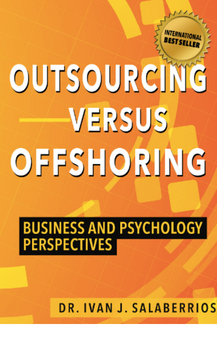Description
Since 1986, offshoring has remained one of the most debated topics of economic policy. Critics see offshoring as a potential threat to the economies of advanced countries, as well as a threat to long-term competitiveness and innovation. Critics also blame offshoring for the weakening of the manufacturing industry, the erosion of domestic capabilities of advanced countries, and job losses. Proponents see offshoring as a source of competitive advantage, and as a useful tool for reorganization and to achieve productivity and cost-savings. Raging debates in the media and elsewhere continue to influence research on the topic of offshoring in relation to its impacts and drivers. However, mixed results—as reported in this study—increase difficulty for policy makers to determine which way to go: advocate for offshoring or dismiss it altogether. Author Ivan Salaberrios builds on the existing body of knowledge and provides a perspective that helps clear confusion about the drivers of offshoring by taking the business and psychology perspectives. Outsourcing versus Offshoring further includes review of the results of studies on the effects of offshoring to highlight keynote results in relation to the effects of offshoring. The aim is to dispel any myth not supported by evidence regarding the potential negative effects of offshoring.






Reviews
There are no reviews yet.